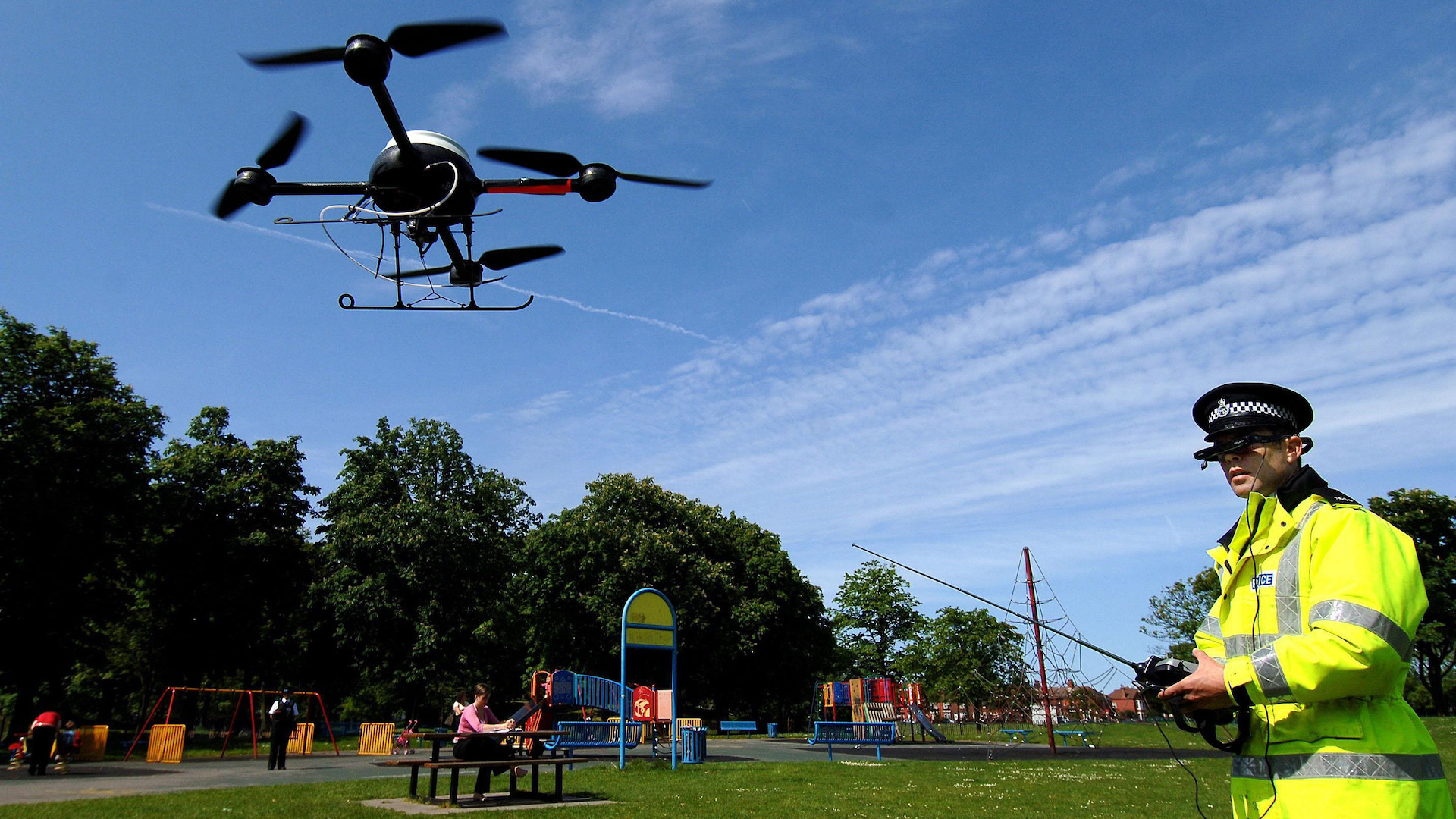

According to Illinois publication Daily Chronicle, newly introduced legislation would expand the limited use of unmanned aerial vehicles for local law enforcement, for use cases including identifying possible criminal activity, evaluating crowd size and movement, public safety, and monitoring potential infrastructural weaknesses in public places.
This legislation, Senate Bill 2562, has already been approved by the Senate, but faces two amendments from the House. One of these amendments was approved with the other having been tabled after officials voted not to adopt it in committee.
DeKalb Police Chief Gene Lowery is eager to implement drones into the job as he’s seen first-hand how practical they could be after a local resident used his drone to monitor a local gunman who barricaded himself in an apartment. Additionally, other members of the DeKalb County Sheriff’s Department have explained how useful UAVs were in investigating local traffic collisions.
We’ve reported on law enforcement increasingly adding drones to their set of tools before with the LAPD being granted permission to do so and the ACLU concerned about the potential politically-motivated infringement on privacy. The issue of civil liberties has certainly come up in discussion with Lowery as well.
“The two areas that are probably the most controversial [when expanding drone use] are general surveillance and crowd monitoring,” he said. “Those areas are probably where organizations like the American Civil Liberties Union have proffered arguments.”
The proposed drone use in the new bill would limit law enforcement to use UAVs as tools for public safety and crowd control. It would also prohibit the police from equipping drones with tear gas, stun guns, or any sort of projectiles.
While Lowery understands the hesitancy of citizens to overwhelmingly agree to UAV expansion and a potential invasion of privacy, he also argues that the police can strip citizens engaging in criminal activity of their right to privacy anyway, regardless of what tool is used to do so.
“However, if [drones] are used within the framework of the law, their benefits can be impactful,” he said. “For those who are committing a criminal act, their expectation or right to privacy can be diminished within the law, whether it is through police use of a drone to view a barricaded gunman, the execution of a search warrant, or some other measure within the law.”
DeKalb County Emergency Services and Disaster Agency Coordinator Dennis Miller, meanwhile, probably posits the argument to increase drone use by government agencies as plainly and enticingly as possible. “If resources that I have could make their job easier, why not make things like a search and rescue easier?” Miller asked. “It’s another set of eyes that can cover more ground than someone walking along a field or river.”